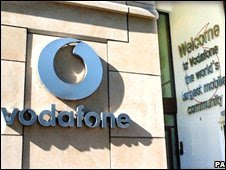
India's economy is expected to expand by 7.1 percent in 2008-09, slower than last year's 9 percent, as the global financial crisis hammered manufacturing, financial services and farm sector output.
Mining and other services may, however, act as a prop to the economy, say the estimates released on Monday by the Central Statistical Organisation.
Whether or not growth will slow down further next year would depend on continuation of fiscal stimulus, Planning Commission Deputy Chairman Montek Singh Ahluwalia said.
"We can continue the fiscal stimulus in the next year. It can be done as part of the full budget...In my view there would be a continuing need for fiscal stimulus and I hope we can do that," he said.
Farm sector output is projected to grow by 2.6 per cent in FY'09, slower than last year's 4.9 per cent, manufacturing by 4.1 per cent, down from 8.2 per cent, construction by 6.5 per cent against last year's 10.1 per cent and financing, insurance, real estate, business services by 8.6 per cent against 11.7 per cent.
Commenting on the outlook for the Indian economy, Ahluwalia said, "The Indian economy should not be slowing down like the rest of the world."
The estimates match the one projected by the Prime Minister's Economic Advisory Council and are a tad higher than what the Reserve Bank has estimated.
Manufacturing sector growth is likely to drop by half in percentage terms this fiscal. The sector comprises 80 per cent of the country's industrial output, which in turn contributes 25 per cent to the GDP.
However, mining and quarrying would grow 4.7 per cent, up from 3.3 per cent; trade, hotels, transport and communication by 10.3 per cent from 12.4 per cent; and community, social and personal services by 8.6 per cent from 11.7 per cent.
Electricity, gas and water supply is likely to grow by 4.3 per cent from 5.3 per cent a year ago.
Enthused by the numbers, Finance Secretary Arun Ramanathan said, "There is room for optimism. That is what (GDP) numbers indicate."
Ahluwalia expects growth to be the same next fiscal. "I think it should be similar to this year -- seven per cent or more would be a reasonable outlook for next year."
The final growth figures may not be exactly as projected by advance estimates of the CSO.
"The possibility of agriculture figures revising is there. There will be some upward revision in the agriculture figures. There is possibility that there will be some downward revision in services... Net net even with the revision, the GDP would be between 6.8 and 7.1 per cent," HDFC Bank Chief Economist Abheek Barua said.
If the national income is evenly distributed among the people, each person will get Rs 38,084 during 2008-09.
In other words, per capita income during the current fiscal grew by 14.4 per cent from Rs 33,283 in 2007-08.
The CSO numbers present a gloomy picture for steel, which is projected to grow by 2.7 per cent in the April-December period of the current fiscal against 6.4 per cent a year ago.
Cement production is also slated to expand by seven per cent in the first nine months of this fiscal against 7.7 per cent in the corresponding period of 2007-08.
Also, the production of commercial vehicles witnessed a fall of 15.5 per cent against the growth of 4.8 per cent in April-December 2007-08.
Passengers handled in civil aviation decreased by 6.3 per cent against the growth of 20.4 per cent over the period.
The farm sector growth is based on anticipated growth of six per cent in horticulture crops, 5.5 per cent in livestock products and six per cent in fisheries.
Crisil Chief Economist D K Joshi described the farm growth as on the lines of trend growth rate. "The trend growth rate has been 3 per cent... last year we achieved exceptional growth, now we are back to trend... and then base is also much...Our expectation was 2.5 per cent," he said.
Many economists attributed the good numbers for community, social and personal services to increase in government expenditure.
Crisil's chief economist said, "The private consumption has gone down and the government consumption has gone up. Lots of government spending, subsidies, oil bonds... so increased government expenditure is what is responsible for this."
Private final consumption expenditure at current and constant prices are estimated to grow by 55.1 per cent and 57 per cent, respectively, in FY09 against 55 per cent and 57.2 per cent last fiscal, while government final consumption expenditure may grow by 11.1 per cent and 10.6 per cent, respectively, against 10.1 per cent and 9.8 per cent in FY08.
Part of the growth maintained by this category reflects the implementation of pay revision for government employees as well.
"The growth in community, social and personal services partly reflects the pay hike which have been implemented and also it constitutes largely of the government services," Abheek Barua said.
The country's total national income is likely to be Rs 29,61,249 crore in the current fiscal, showing a rise of 7.1 per cent against 9.1 per cent a year ago.
Gross fixed capital formation, which represents fixed assets bought by the government, businesses and households on net basis, is estimated to grow by 34.6 and 32.1 per cent this fiscal against 34 per cent and 31.6 per cent last year.
Good GFCF numbers indicate that future business activity will remain strong.




































